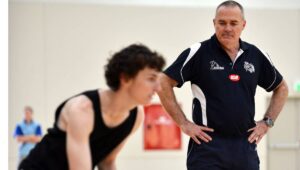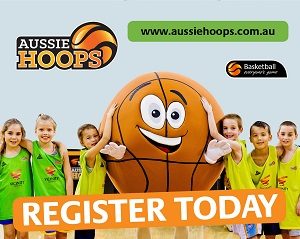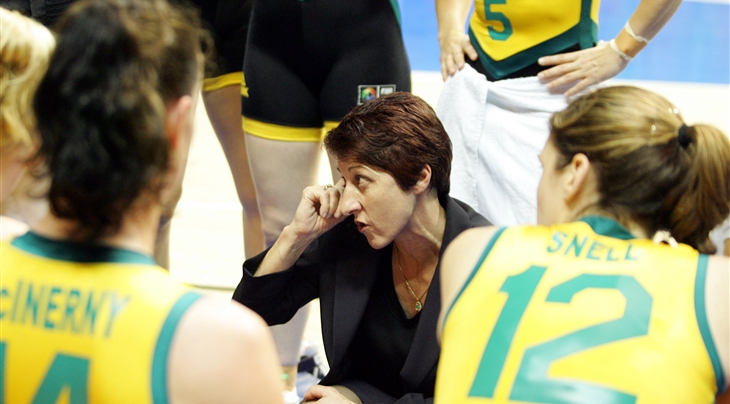Building on from our previous article on “What Makes a Valuable Assistant Coach”, we have received more terrific insights from coaches from the network and now share Part Two of the article.
Jan Stirling – FIBA Hall of Fame coach and former Opals Head Coach
- Passion to listen, learn and share what they know and discover during their journey
- Astute, proactive and self-aware knowing the importance of their own contribution to athletes, coach colleagues and when to administer
- Emotional intelligence underpinned with empathy and care knowing when personal selflessness for the greater good for all involved is needed
Katrina Hibbert – Head Coach, Sydney Uni Flames
- Loyalty and honesty – I think it is important to surround yourself with people who have your back, share the same values and vision for the program and are comfortable enough to offer thoughts and opinions
- Great communicator – have the ability to communicate the message of the head coach, use the same language while building good relationships with athletes and staff
Jacob Chance – Assistant Coach, Perth Wildcats
- Being accessible – to both players and staff, always be available and willing whatever the task. That may be on the floor, in the film room or any other situation
- Clear cut and on point with communication – you’re an extension of the message, not the message. Avoid speaking for the sake of it, prioritise the things that need to be emphasised
- Stay ahead of the game – your job in practice, in a season or in the flow of a game is to know what is coming next. Organisation and planning help this, assistants must do their work early
“You’re an extension of the message, not the message”
Adam Forde – Head Coach, Sydney Kings
- Back your opinions with evidence while answering the why – whether it’s a suggestion to your head coach, or feedback to the players you’re working with, you need to be prepared when challenged on your view/opinion. For example – think you should zone this particular team? Why? This player has poor shot selection? Show me!.
- Be sure to present players and other coaches with the data and video showing you have thoroughly looked into something; and have a firm grasp that you know what you’re talking about. This will also eliminate any poor reactionary decisions as sometimes we make bigger deals of unnecessary things that just happened.
- Being prepared will show your players and coaching staff that your a reliable professional. As your profile begins to grow as such, so will the confidence from the playing group in your ability to coach and offer up sound advice.
- But most importantly be prepared to have your opinion rejected by the head coach and then back him with whatever the final decision is

Rex Nottage – Head Coach, Newington College
- Be prepared to be disagreeable – not a yes man
- Buy into what we are doing 100%
- Be the “good cop” always
Robbie McKinlay – Assistant Coach, NBA Global Academy
- Knowledge of the game – ability to teach players how to improve
- “Clean the weeds out of the garden” – make players more efficient with their skill and understanding
- Understand of what the coach wants and loyalty
- Know when to talk and when to say nothing
“Clean the weeds out of the garden”
Sandy Brondello – Head Coach, Australia Opals and Phoenix Mercury (WNBA)
- Highly competent in scouting and use of technology such as SportsCode, FastScout and other programs
- Skilled in player development and willingness to do the work in this important area
- Be a team player – understand your role, be loyal and support the head coach with whatever is required
- Good assistants are the ones who offer their opinion, but support the head coach with whatever decision is made – alignment
Alan Keane – Head Coach Reading Rockets & Great Britain U20 Men
- Assistants should maintain a coaching attitude of non-judgemental and have a clear mind to listen, observe and notice. Be objective and avoid venting, ranting and commentating while coaching
- Embrace change and accept nothing is long lasting – this is something to be aware of and educate our teams to be accepting of embracing change, adaptability and that impermanence is part of the journey and we must move on and remain in the present
- Good assistants understand context, coaching experiences, personality, players experience, environmental factors etc. that they work in. This will mean they simply cannot and should not replicate the Head Coach philosophy. Embrace it, adapt it, tweak it, make it your own and contextualise it, yes!
- Valuable assistants offer players respect with communication and an empathetic and compassionate attitude while still maintaining overall control and a healthy relationship. It is a tough balance for assistant coaches to get right without confusing the players
- Effective assistant coaches display behaviours which indicate that they create optimal learning conditions, are aware of their abilities and inabilities, take responsibility and initiative, are focused, and are prepared for practice
- Loyalty – give your complete attention and support to the head coach. You don’t have to agree. Create positive stress with the head coach and seek challenge to provoke thoughts. Whatever the head coach finally decides you must back him/her or else you must walk away from the role
- Engage in self-reflection and share these reflections with others who are more experienced
Thanks to all coaches who contributed their valuable thoughts on being a valuable assistant coach.




Leave a Reply